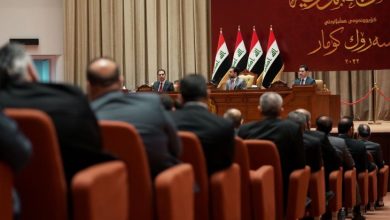Habermasian Deliberative Democracy Model and Possibly Critiques

Especially in the world order that emerged after the second world war, today’s modern, liberal, democratic societies try to secure their own legitimacy, economic prosperity and sense of identity. In democratic societies, democratic methods in which everyone participates as a means of legitimacy, where freedom is the main basis, and where social negotiation exists are very important in terms of legitimacy. According to the deliberative view, democracy should be ensured by equal participation among equal people. Each individual should be able to ask questions, discuss and express their opinions. In democratic societies, there is a developed or developing social consciousness. For this reason, individuals regularly participate in the elections, but a large part of them are disturbed by the fact that the people elected after the elections, the parties do not respond to the needs of the people, and that they rule the country without an advisory system. For this reason, it is very important to publicly state the problems, try to find solutions through negotiations, and inform the press organs. For this reason, deliberative democracy is a process in which the public can share their knowledge, express their opinions on issues and problems that concern them, and participate in the solution processes. Deliberative democracy emerged with the criticism of liberal democracy. Liberal democracies began to experience legitimacy crises at some point. Deliberative democracy argues that liberal democracy is more sterile, lacks in offering solutions to the problems it faces today, and says that the solution to these problems is deliberative democracy.
Deliberative democracy aims to create an atmosphere of discussion. Consensus is one of the main goals. Every individual affected by a decision or action should be able to express their opinions and participate equally in the created discussion environment. One of the various criticisms brought to Mouffe’a’s views and the basic arguments of Habermanian deliberative democracy may be related to pluralism. A criticism can be made that deliberative democracy cannot fully respond to the political structure. Because liberal democracy is pluralistic, it argues that it is impossible to achieve full equality. It favors the implementation of the majority’s decisions, but deliberative democracy claims that problems cannot be resolved without discussion, and argues that discussions must be open to the public or there will be distrust.
Another criticism may be within the framework of rationality. Because the rationality of each person is dependent on the conditions of his upbringing, psychology and other environmental factors. People’s ideas and rationality cannot be thought of independently of their environment, the ideas and ideologies of the society they grew up in. People’s rationality is dependent on them. The higher the number of rational individuals, the lower the rationality of the decision. Conflicts can arise because everyone’s rationality is different.
Another criticism may be in terms of education and knowledge. The equal participation of everyone affected by these decisions in decision-making, problem-solving mechanisms and discussion environment brings with it the participation of uneducated and ignorant people in these decision-making processes. With equal participation, ignorant and uneducated people in the fields of politics, economy, diplomacy and problem solving will also take part in these decision-making processes. For example, someone who is uneducated and ignorant in economics may be involved in an economic decision-making process. Someone who has no knowledge in terms of diplomacy can participate in the decision-making process in foreign policy. In this respect, deliberative democracy can also be criticized over Plato’s views in the book “The State” and the idea of normative elitism.
Yazar: Zeki Talustan Gülten



